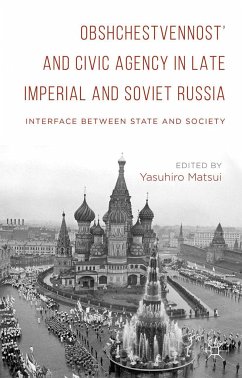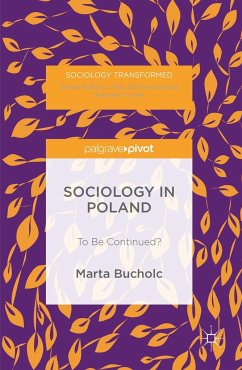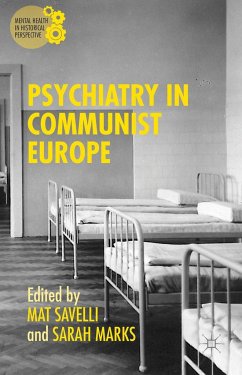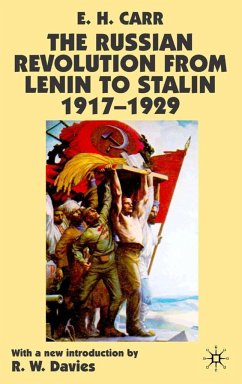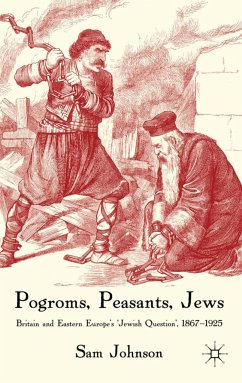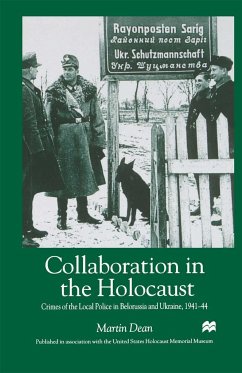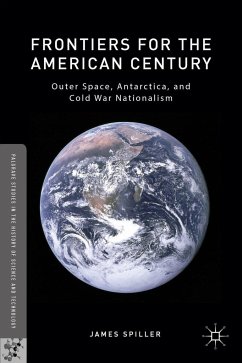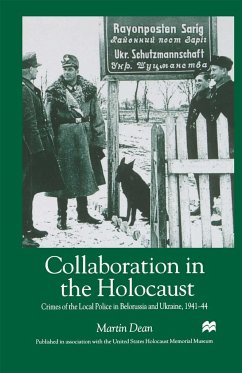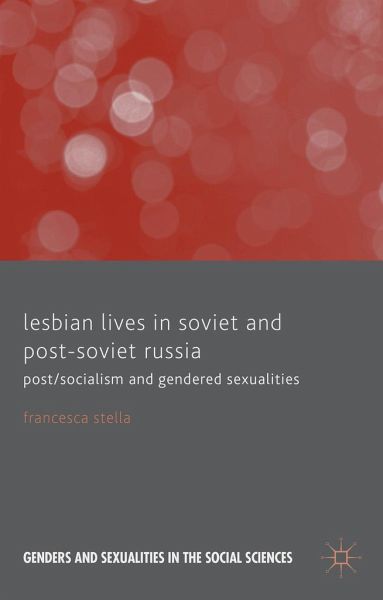
F. Stella
Gebundenes Buch
Lesbian Lives in Soviet and Post-Soviet Russia
Post/Socialism and Gendered Sexualities
Versandkostenfrei!
Versandfertig in 6-10 Tagen
Weitere Ausgaben:

PAYBACK Punkte
46 °P sammeln!





This book explores the everyday lives of 'lesbian' women in urban Russia. It explores changes and continuities by examining generational differences, and attends to regional variation by considering what 'lesbian' life looks like in different locations, problematising essentialist accounts of Russian sexualities and western-centric theorizations.
Francesca Stella is Research Fellow at the University of Glasgow, UK. She has held an ESRC postdoctoral research fellowship and worked as a lecturer at the University of Glasgow across the subject areas of Sociology and Russian Studies. Her publications include articles in Europe-Asia Studies and Slavic Review.
Produktdetails
- Genders and Sexualities in the Social Sciences
- Verlag: Palgrave Macmillan / Palgrave Macmillan UK / Springer Palgrave Macmillan
- Artikelnr. des Verlages: 978-1-137-32123-7
- 2014 edition
- Seitenzahl: 192
- Erscheinungstermin: 17. November 2014
- Englisch
- Abmessung: 223mm x 141mm x 22mm
- Gewicht: 383g
- ISBN-13: 9781137321237
- ISBN-10: 1137321237
- Artikelnr.: 41196221
Herstellerkennzeichnung
Libri GmbH
Europaallee 1
36244 Bad Hersfeld
gpsr@libri.de
"The primary focus of the book is the 'experiences, practices and identities of non-heterosexual women in Soviet and post-Soviet Russia' ... . Stella's theoretical critique is far deeper and of relevance to debates in disciplines including Political Science, International Relations, and Anthropology. ... For those already broadly familiar with the relevant theoretical debates, it will be a rewarding and thought-provoking read ... ." (Cai Wilkinson, Journal of Soviet and Post-Soviet, jspps.eu, Vo. 2 (1), June, 2016)
"She demonstrates a thoroughgoing study of politicized and marginalized lesbian identities since a decade after the collapse of the Soviet Union. ... Stella's work is a valuable contribution for scholars studying gender
"She demonstrates a thoroughgoing study of politicized and marginalized lesbian identities since a decade after the collapse of the Soviet Union. ... Stella's work is a valuable contribution for scholars studying gender
Mehr anzeigen
studies. It is a well-founded publication because she has conducted first hand interviews with lesbians and analyzed her findings methodologically." (Vivian Sabrina Lee, Slovo, Vol. 28 (1), Winter, 2016)
"This book is a highly readable ethnographic account of lesbian and bisexual women's lives in Soviet and post-Soviet Russia. It is a timely book which presents a valuable contribution to gender and sexuality studies, as well as to the literature on socialism and post-socialism. The empirical base of this monograph is the use of multiple research methods, such as participant observation and interviews, in two different fieldwork sites." (Ulrike Ziemer, Europe-Asia Studies, Vol. 68 (6), 2016)
"This book is the first text that focuses attention on queer sexuality within a peripheral location, and provides a new insight into the enigma of post-Soviet sexuality. ... Lesbian Lives is an interesting read for academics working on sexualities in post- socialist spaces, and especially post- Soviet Russia. It also might provide some insights for scholars interested in queer geography." (Veronika Lapina, QED A Journal in GLBTQ Worldmaking, Vol. 3 (3), 2016)
"The empirical base of this book is ethnographic research focussing on the experiences, practices and identities of non-heterosexual women in Soviet and post-Soviet Russia. ... this work can be seen as one of the first representatives of a post-queer study of sexuality, incorporating 'the criticism of queer theory while maintaining the grounded footing of empirical sociology' ... and a very invigorating one, indeed." (Judit Takács, Intersections, Vol. 1, 2015)
"This book is a highly readable ethnographic account of lesbian and bisexual women's lives in Soviet and post-Soviet Russia. It is a timely book which presents a valuable contribution to gender and sexuality studies, as well as to the literature on socialism and post-socialism. The empirical base of this monograph is the use of multiple research methods, such as participant observation and interviews, in two different fieldwork sites." (Ulrike Ziemer, Europe-Asia Studies, Vol. 68 (6), 2016)
"This book is the first text that focuses attention on queer sexuality within a peripheral location, and provides a new insight into the enigma of post-Soviet sexuality. ... Lesbian Lives is an interesting read for academics working on sexualities in post- socialist spaces, and especially post- Soviet Russia. It also might provide some insights for scholars interested in queer geography." (Veronika Lapina, QED A Journal in GLBTQ Worldmaking, Vol. 3 (3), 2016)
"The empirical base of this book is ethnographic research focussing on the experiences, practices and identities of non-heterosexual women in Soviet and post-Soviet Russia. ... this work can be seen as one of the first representatives of a post-queer study of sexuality, incorporating 'the criticism of queer theory while maintaining the grounded footing of empirical sociology' ... and a very invigorating one, indeed." (Judit Takács, Intersections, Vol. 1, 2015)
Schließen
Für dieses Produkt wurde noch keine Bewertung abgegeben. Wir würden uns sehr freuen, wenn du die erste Bewertung schreibst!
Eine Bewertung schreiben
Eine Bewertung schreiben
Andere Kunden interessierten sich für





